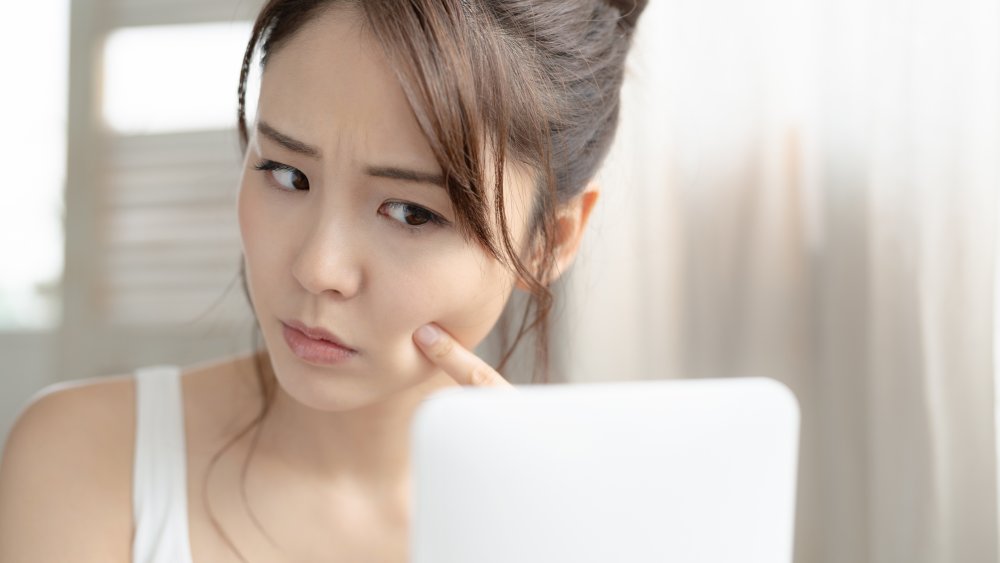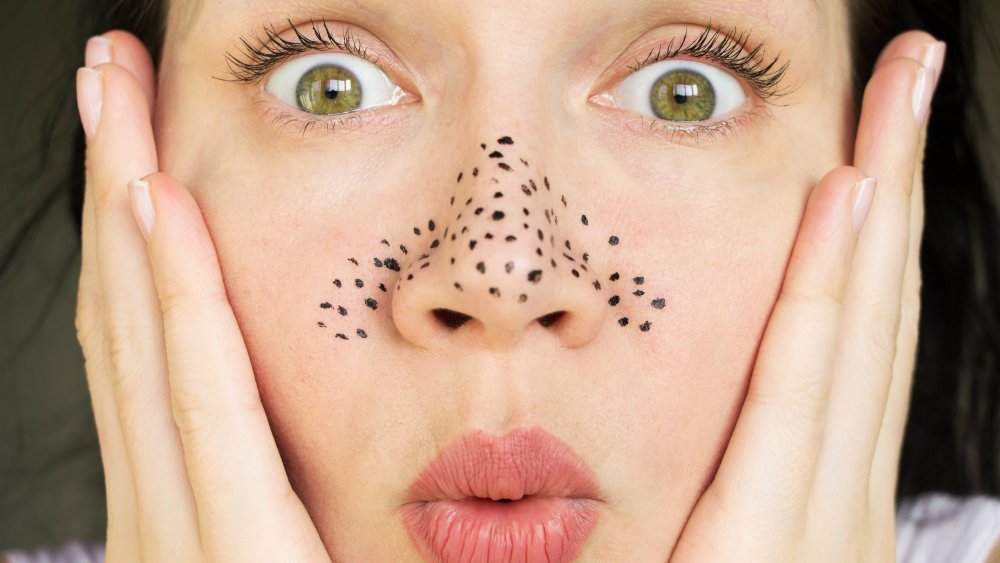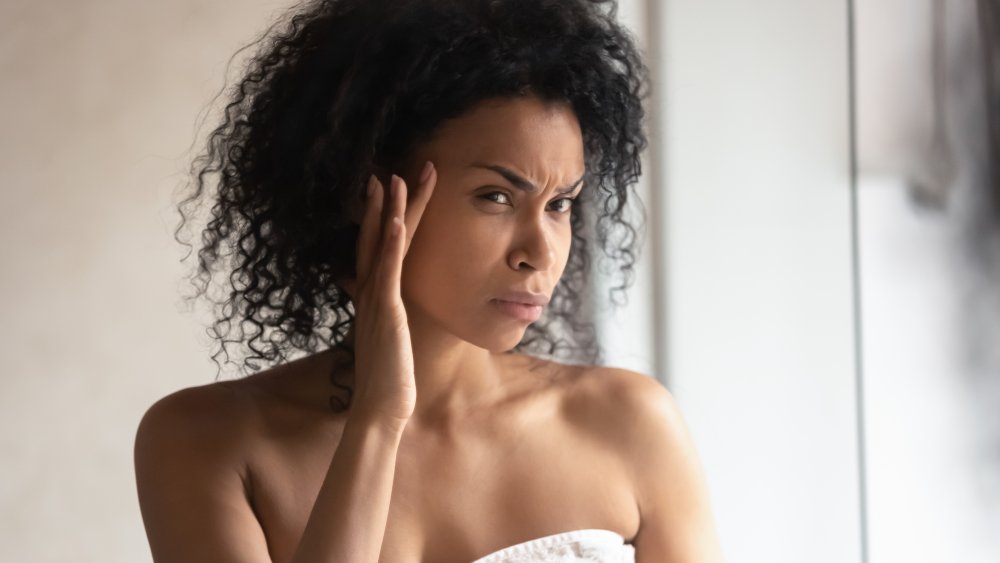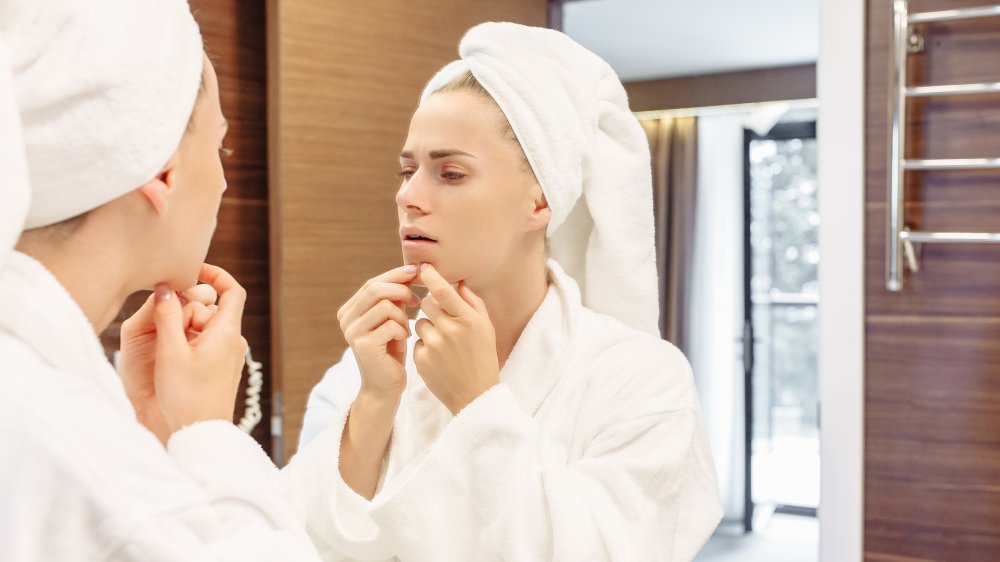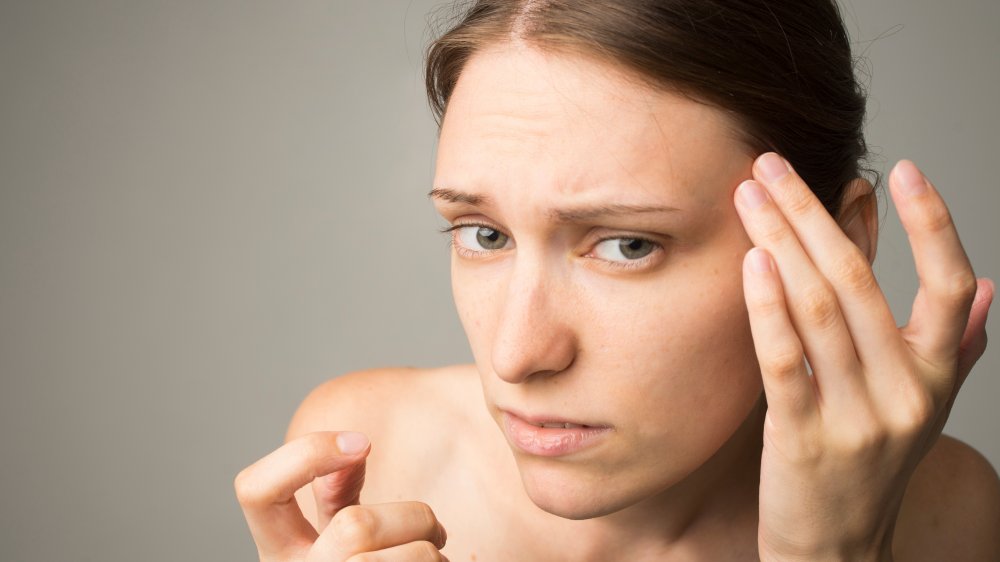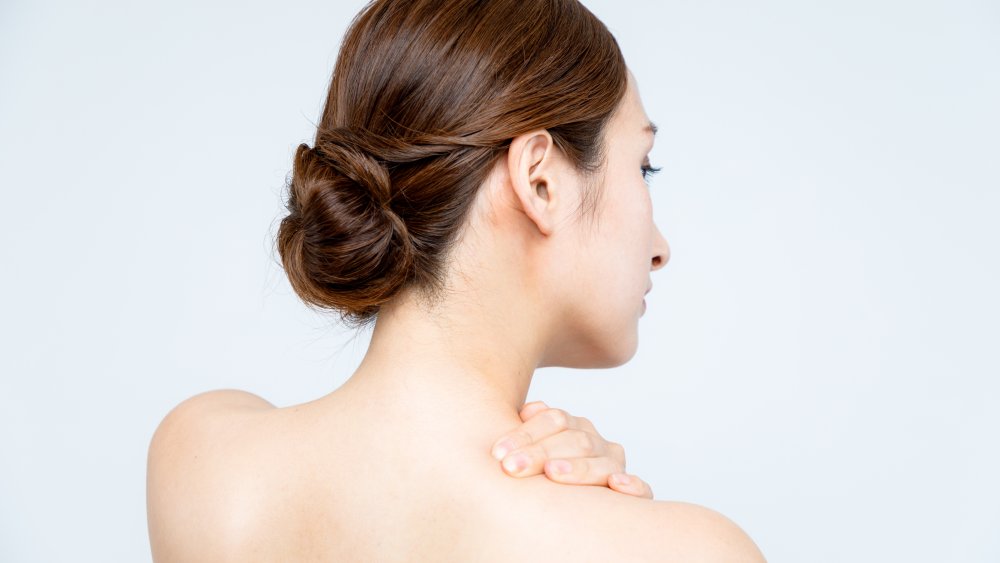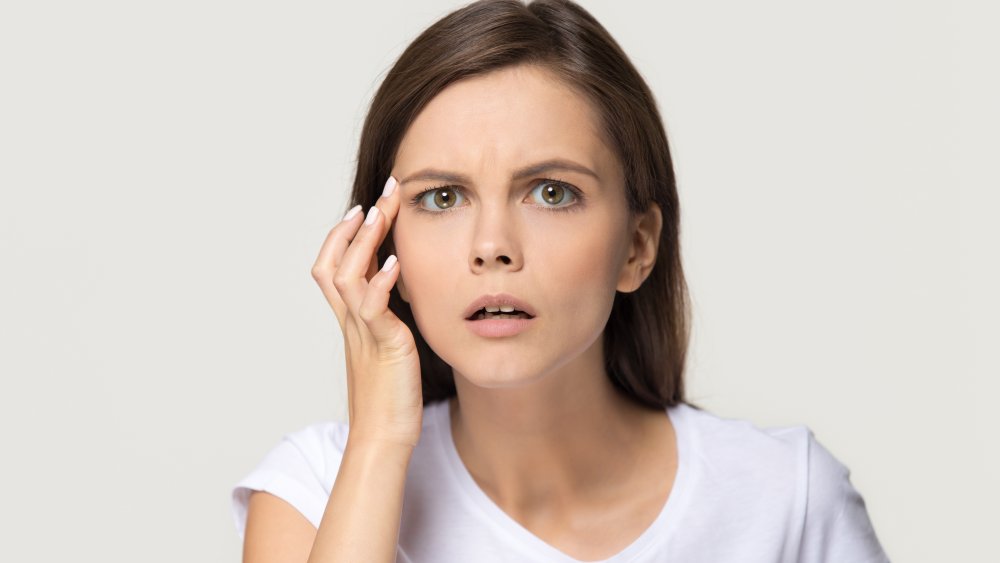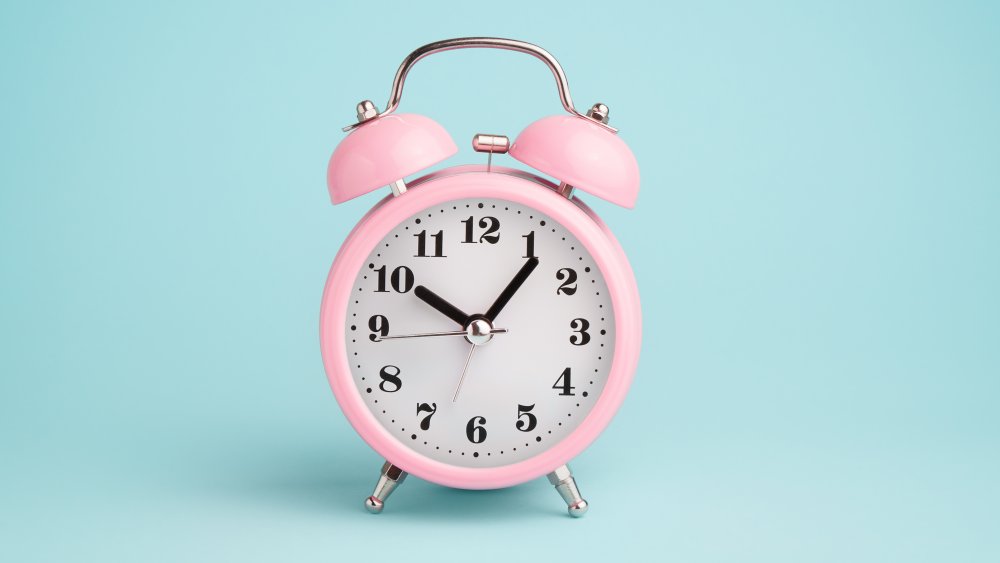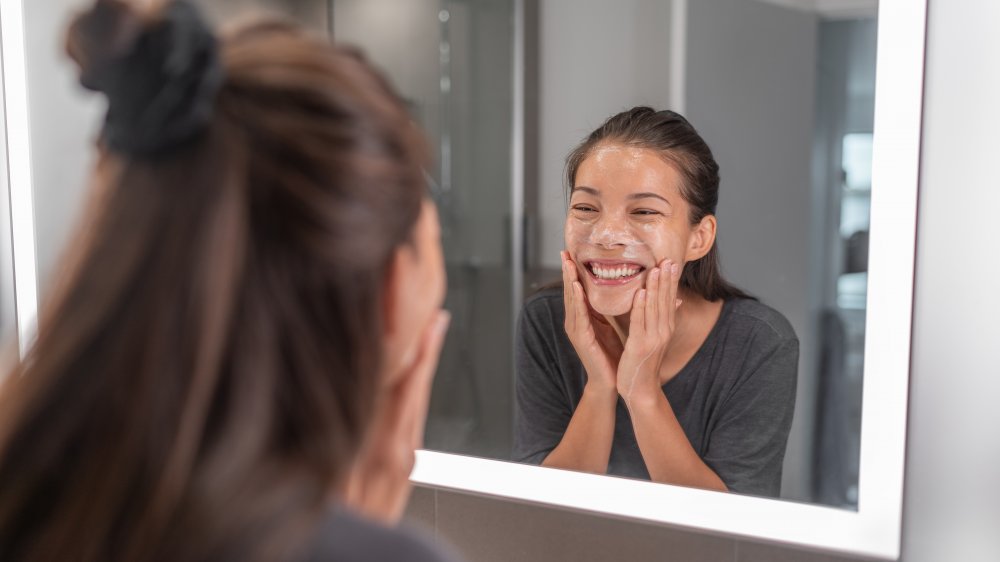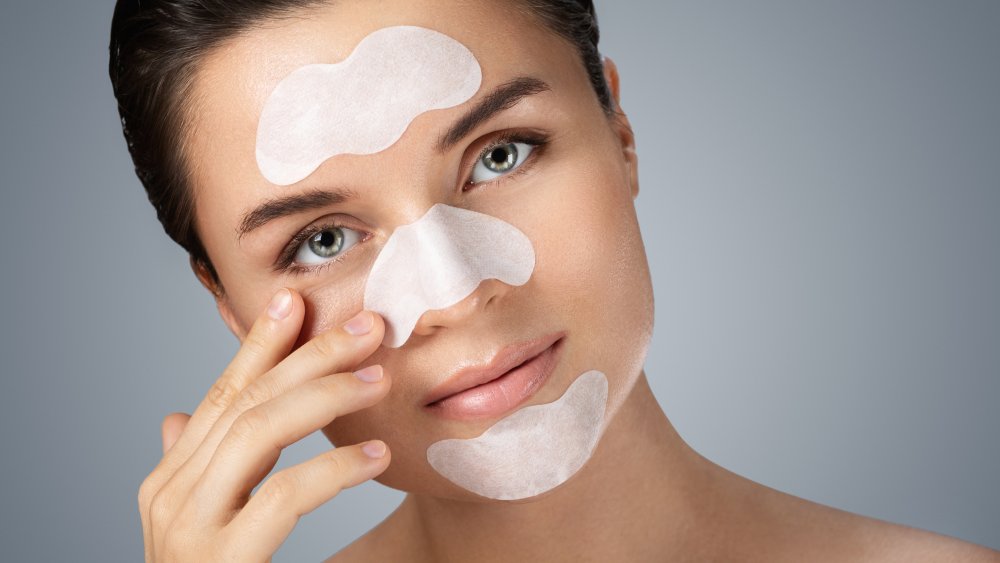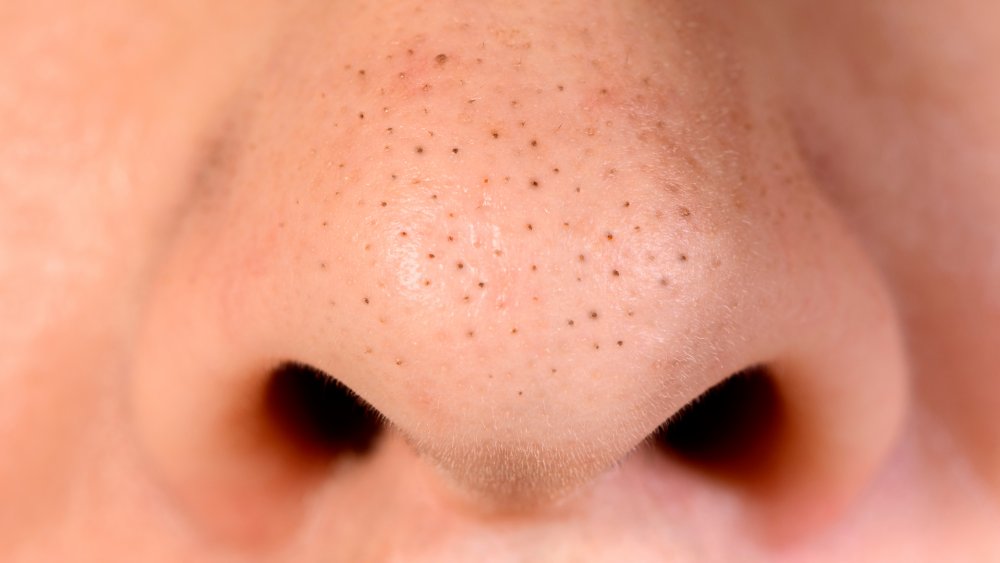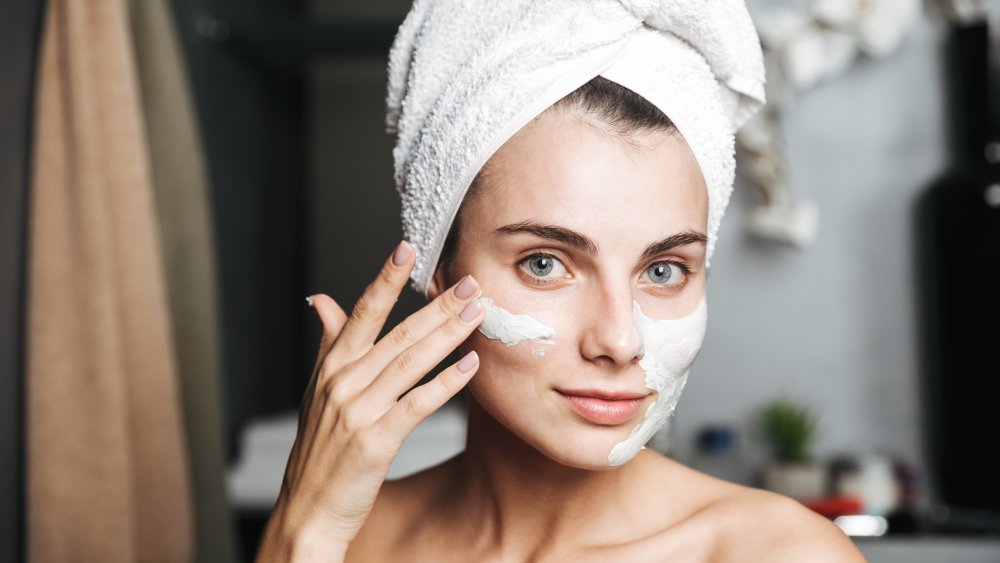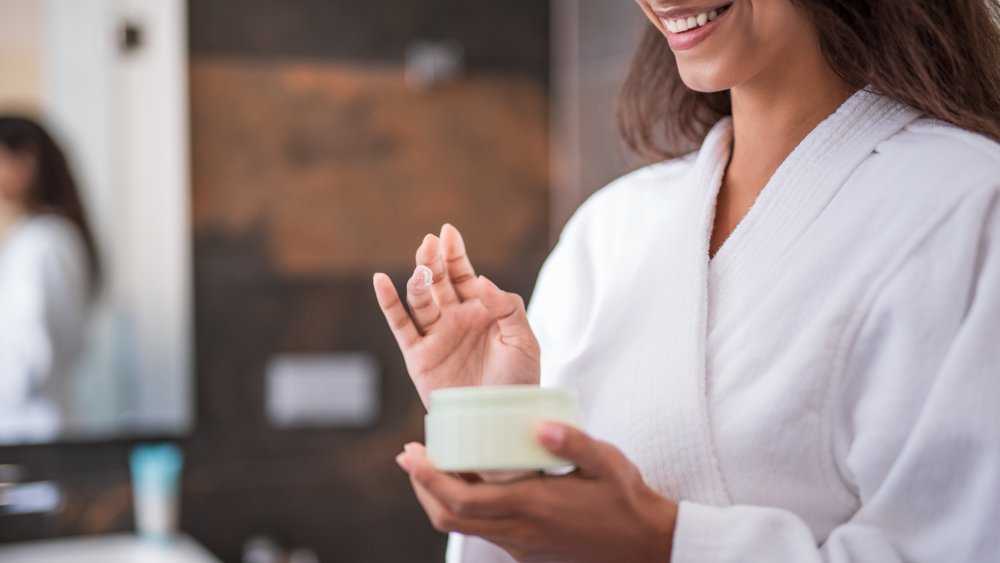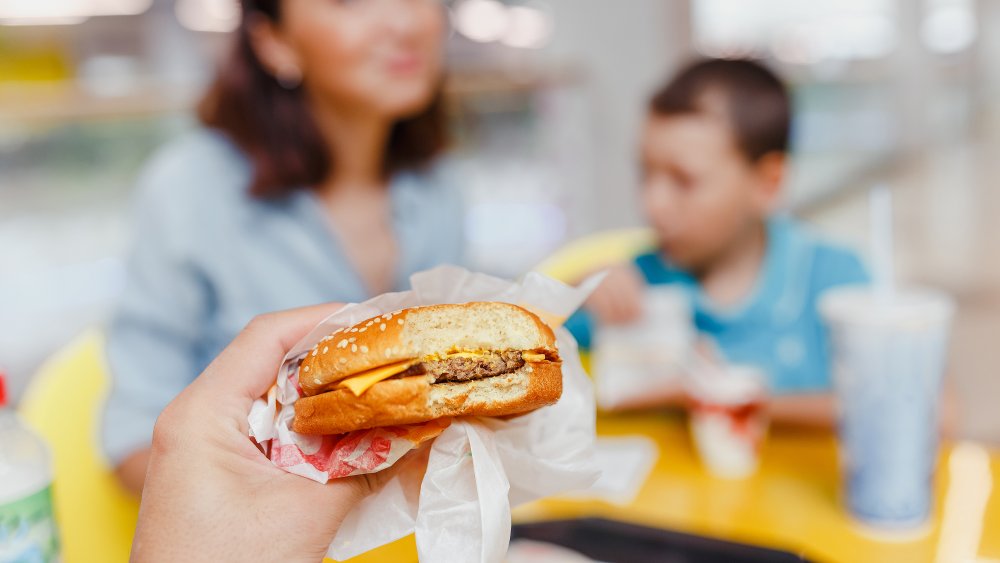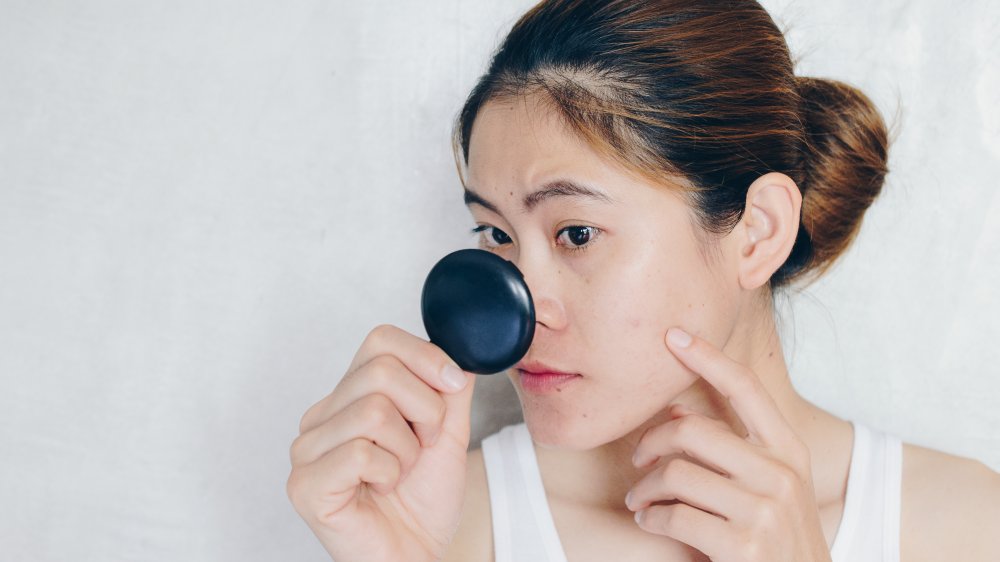The Truth About Blackheads
Some mornings you may find blackheads after you enter the bathroom and wash your face. You might notice a tiny dark spot or two on your nose. And then another in between your eyebrows. Dang it. These little devils, like any other blemish, can be super annoying to wake up to, especially if you obsess about your skincare routine.
However, no matter how diligent you are with your skin, sometimes things happen. If you start to notice more and more blackheads popping up, it could mean a few things. On top of checking in on any lifestyle changes that you might have made recently, it's important to see a dermatologist if things start to get really bad or if you start to see them pop up in random places that you're not used to.
If you're interested in what these little bumps are and how to treat them, read on to learn the truth about blackheads!
How blackheads got their name
Blackheads are those tiny, dark spots that appear on the surface of your skin. According to Healthline, they're called blackheads because the center of the mark usually looks dark or black. If you get them confused with large or clogged pores, you're not alone. However, they're usually larger and darker than pores, and they contain an oxidized version of melanin, as noted by Medical News Today.
If you've had blackheads in the past, you have might noticed that they're not as painful as other forms of acne, such as cystic pimples or whiteheads. That's because blackheads are non-inflammatory, which is a fancy way to say they're not infected like other pimples or pustules are. They also tend to be flatter than other acne types, even though they may be slightly raised from the skin. Medical News Today noted that it's very rare that the presence of blackheads warrants a visit to the doctor's office, unless you have other severe acne issues. Or unless it gets as bad as, for example, this 55-year-old blackhead that was seen on Dr. Pimple Popper. Warning: that blackhead is pretty gross!
Blackheads aren't caused by trapped dirt
When you first started out in your skincare journey, you probably believed that blackheads are caused by trapped dirt on your face. However, it's time you knew that this isn't true, according to Michelle Henry, a board-certified dermatologist and clinical instructor of dermatology at Weill Cornell Medical College in New York City. She told Allure that what is getting trapped is more likely dead skin cells and oil, not dirt. So, there's no need to over-wash your hands and face!
In general, breakouts can be caused by a host of things that aren't dirt, including excess oil, dead skin cells, built-up bacteria, and hormones, according to Healthline. And while there isn't any evidence that confirms that eating specific unhealthy foods like pizza or soda can cause acne, there are some holistic practitioners who believe that what you eat has an effect on what your skin looks like. See, it's not only dirt that might be behind your blemishes!
This is what causes blackheads
Even though they aren't caused by trapped dirt, there is still a reason why people get blackheads. Shari Marchbein, a board-certified dermatologist, told Allure, "[Blackheads] are characterized by a dilated opening of a hair follicle, caused by the build-up of sebum, which is oil, P. Acnes bacteria, the primary bacteria responsible for causing acne, and inflammation." Basically, blackheads form when an open hair follicle becomes clogged with oil or dead skin cells. And even though oil, also called sebum, keeps your skin soft, too much oil can contribute to blackheads.
According to Healthline, when the oils and cells get into the follicle, a bump called a comedo is formed on the skin. The blackhead is formed when the skin over that bump opens and the oils and skin cells in the open pore react with the oxygen in the air and turns black, thus forming the blemish. Blackheads and other forms of acne commonly happen during puberty or other hormonal changes. However, other things like heavy sweating, blocking or covering pores with makeup or fabric, shaving, stress, or health conditions like premenstrual syndrome (PMS) can trigger blackheads, too, as noted by Medical News Today.
This is the difference between blackheads and other blemishes
Not all blemishes are one and the same. Cystic acne, whiteheads, blackheads, clogged pores — sometimes, it can be hard to figure out the difference between all of them. As mentioned blackheads are dark and are the result of an open, clogged hair follicle (via Healthline). While a whitehead forms the same way in a clogged pore, the main difference is that, instead of the pore remaining open to create a blackhead, a whitehead happens when the skin over the pore remains closed (via InStyle). Blackheads are known as open comedones while whiteheads are known as closed comedones.
Other forms of acne include papules, pustules, nodules, and cysts, which are all considered inflammatory acne. Basically, this means that these blemishes are red and swollen, and they're caused by bacteria deep beneath the skin's surface, noted Healthline. These types of acne look very different from blackheads or whiteheads, and treating them usually involves some kind of prescription.
You might get blackheads confused with clogged pores, too. Called sebaceous filaments, these small spots commonly seen on your nose are a result of the overproduction of sebum, which just makes your pores appear larger. Definitely don't try to pop these (via Refinery29)!
Blackheads can appear on a lot of different places on your body
The worst thing about blackheads is that they seem to show up in the places where everyone can see them. While blackheads can appear on your face, they can also pop up on your neck, chest, shoulders, and back. You might see blackheads pop up where you sweat heavily like on or around your nose, near your hairline, or on your back. These can definitely get worse if you wear clothing or makeup over these areas (via Healthline).
Many consider skin to be a good indicator of what's going on with your health. "It is important to consider your skin's natural tendencies as new acne develops," board-certified dermatologist Shari Hicks-Graham, MD told Bustle. "If acne is common for you, that's one thing, but if your acne suddenly becomes worse, consider any other changes in your health or medications and get help from your medical professional or see a dermatologist."
Some say that acne, especially hormonal cysts, could mean anything from stress to more serious ailments like polycystic ovarian syndrome (PCOS). Be sure to talk to your doctor if you're concerned.
This is why frequent extractions won't always treat blackheads
Anyone who's ever gotten a facial can agree that they're amazing. However, frequently booking appointments to get extractions to treat your blackheads might not be the best idea. "Extractions refer to the process of clearing clogged or obstructed pores, also known as comedones, from the skin," Nandi Wagner, a lead esthetician at Bliss Spa, told The Zoe Report. Usually, you go to get extractions when you start to notice or feel the congested pores in or under your skin. However, once those pores get unclogged, the pore is dilated, which makes it vulnerable to get clogged again (via Self).
Dr. Shari Lipner M.D., Ph.D., a dermatologist at Weill Cornell Medicine and New York-Presbyterian, told Self that, at the very least, make sure you go to a professional to get an extraction done, as opposed to doing it at home. "If not done correctly, they can cause permanent scarring," she said.
So, while extractions can be a super satisfying process, overdoing it could do some serious damage.
Treating blackheads can take more time than you think
When it comes down to it, the best way to treat blackheads and other blemishes is to be diligent with your prescribed skincare routine for a long time. For blackheads specifically, dermatologist Dr. Shari Lipner told Self that, on top of consistently washing and moisturizing your face, using exfoliants can help get rid of the extra dead skin cells and oil.
Cadogan Clinic's Dr. Anjali Mahto told Cosmopolitan UK that she recommends exfoliating in addition to switching your makeup and/or skincare routine. Dr. Mahto also noted that when you're looking for products that you should make sure to look out for non-comedogenic ones because they won't clog your pores. Mahto specifically recommends avoiding ingredients like petroleum, shea butter, glycerin, and any oil-based products.
Dr. Mahto also said that it takes time to get rid of these blemishes, and, because blackheads can also be caused by excess oil, they don't go away forever. "So whatever treatments you do, blackheads will always naturally reform every 20 to 40 days," she said. "This means doing a one-off treatment won't permanently get rid of them, the blackheads will come back. Tackling them needs to be an ongoing process."
Exfoliating your face is a good way to treat blackheads
There are two kinds of exfoliants: physical and chemical. Physical exfoliants remove the upper layer of dead skin cells by using something abrasive on the skin, while chemical exfoliants dissolve that layer of cells using glycolic or salicylic acid, said Dr. Anjali Mahto of London's Cadogan Clinic to Cosmopolitan UK. Both are the first steps in any anti-blackhead skincare routine. Examples of physical exfoliants include using a face cleansing brush or a face scrub with granules in it. For chemical exfoliants, alpha-hydroxy-acids (AHA) and beta-hydroxy-acids (BHA) are great for treating blackheads and unblocking pores, according to Business Insider.
"Be careful not to over-exfoliate though, as that can push the inflammation deeper and worsen the spots, whilst also causing dryness and irritations," warned Dr. Mahto. "If you are exfoliating acne or oily-prone skin, once a week is fine." She said that if you're exfoliating once or twice a week and you're still not finding the results you want, you might want to book an appointment for a medical-grade chemical peel. Essentially, these professional peels are like super strong chemical exfoliants, and they use medical-grade glycolic or lactic acid to clear out your pores. This is something you need a professional for!
This is why you shouldn't use pore strips to treat blackheads on your nose
Pore strips are somewhat of a divisive beauty trend. Beauty gurus and dermatologists alike have debated whether or not you should be using them as a part of your daily or weekly skincare routine. Specifically, specialists say that the ripping motion that happens while using the pore strips could be harmful for your skin. People usually buy pore strips because they see blackheads on or around their nose, but the most you'll get out of using them is slightly smaller-looking pores. Dermatologist Shari Marchbein told Allure that they're a temporary solution at best and that there is no strip or product that can make as drastic of an improvement as you want.
And while yes, seeing the gunk come out after you tear the strip away from your nose is super satisfying, there's a chance that it could injure your skin. Brian Zelickson, MD told Refinery29 that "this tearing is especially common in individuals with naturally thin skin or skin disorders such as rosacea, psoriasis, or seborrhea." If you have blackheads and sensitive skin, you should probably stay away from pore strips altogether.
Does the blackhead vacuum really work?
It can feel like every day there are new gadgets and gizmos trying to get your attention by claiming to do the impossible. Take the blackhead vacuum, for instance. The vacuum, according to GQ, is about the size of your average banana and it claims to gently suction-cleanse your face to get rid of whatever's lurking in your pores. You're supposed to turn on the device and slide the circular tip across your pores. These vacuums come with different levels of suctioning intensity, and the instructions will usually warn you against holding the vacuum in any place for too long. Cosmopolitan's editor Chloe Metzger tried one on her boyfriend, and she said, while the three blackheads they managed to extract were super satisfying, it just left her test subject's face with red marks and an angry disposition.
"What you're really doing with a pore vacuum is very superficially removing any dead skin, makeup, and oils from the surface of your pores, which you can also do by cleansing very well," said dermatologist Arash Akhavan, MD, noting, "They continue to stay open and fill back up, which means at best, you're seeing a very temporary fix and some psychological satisfaction."
Masking can help you get rid of blemishes like blackheads
Masking is a tried and true skincare staple that can really help you get rid of blackheads, as noted by Healthline. Dermatologist Dr. Anjali Mahto told Cosmopolitan UK that clay masks, in particular, are great for those with blemish-prone skin to use once a week. "They're super effective when it comes to drawing impurities out of the skin and reducing oil production," she told the magazine. Before you mask, though, she recommends exfoliating, "as this will allow it to really penetrate the skin."
If you want to opt for something slightly stronger, look for ingredients that will break down blackheads. On top of salicylic and glycolic acid, ingredients like charcoal can help absorb impurities in your pores, according Women's Health. Rachel Nazarian, MD, a New York-based dermatologist, told Women's Health that sulfur, if in the right product, can help cancel out oil without irritating your skin. She said that sulfur can be paired with something like niacinamide, "which calms skin and decreases redness."
Blackheads can also be treated with retinoids
Skincare pros will already know about the benefits of retinol for its acne-fighting and anti-aging benefits. The popular products are made out of vitamin A, and WebMD noted that it's known for increasing the amount of collagen in the body to make skin "plump" and firm. According to WebMD, retinol is also known for improving skin's tone and color. Yes, it's a pretty powerful product, and it's always recommended that you are actively applying sunscreen throughout the day to keep your skin safe if you use it.
Retinols can be particularly helpful when fighting off blackheads because they help break down some of the stuff that's found in the blemishes. "Retinol ingredients, like adapalene, are known as 'comedolytic,' meaning they break down the core of the blackhead and can treat these particular lesions more effectively," dermatologist Dr. Rachel Nazarian told Women's Health. Since prescription-strength retinoids tend to be more effective than over-the-counter options, dermatologists recommend using it to help alleviate skin congestion. Dr. Jessica Weiser of New York Dermatology Group told Byrdie, "Retinol works on receptors in the skin to regulate skin turnover and increase the efficiency of dead skin removal."
Be right back — making an appointment with our doctors now!
Certain foods could be causing blackheads and other acne, but science hasn't confirmed it
Acne affects a huge portion of the world's population, so there are more than a few theories out there about what can help get rid of acne without medical or dermatological assistance (via British Journal of Dermatology). One of the more popular theories is that what you eat has a direct effect on how much and what kind of acne you get. However, as WebMD pointed out, science has still not confirmed connections between food and acne. Still, poor nutrition might make, at the very least, acne-prone teens more vulnerable to breaking out, said California-based dermatologist Ava Shamban, MD.
There also hasn't been much research into the connection between food and blackheads. Usually, if you suffer from acne as it's related to food, you might be more likely to develop is hormonal and cystic acne. Eating foods like dairy products can irritate your acne, as noted by The Journal of Clinical and Aesthetic Dermatology. Healthline also said that eating fast food or foods high in carbohydrates and sugar like foods from McDonald's, Burger King, and Wendy's could potentially increase your risk for acne — although no clear connection between the two has been confirmed by science. Still, it's a good idea to eat less fast food anyway!
Whatever you do, don't pick at your blackheads
Okay, so this might be the most important skincare advice out there: Don't pick at your skin! Trying to pop, squeeze, or extract your own blackheads might be super tempting, but, ultimately, it's not worth it. Unless you're a professional aesthetician or dermatologist, you probably don't know the right way to get rid of blackheads. Olga Lorencin, a celebrity aesthetician, told Insider, "You will not be able to determine how deep your blackhead is, how tight pores are, or how you should prep your skin in order to extract your blackheads without leaving the skin red and irritated or cause unintentional scarring."
Instead, opt for a consistent skincare routine with the recommended products. If you really feel like your blackheads or other blemishes are becoming an issue, or your skin is feeling more congested than usual, then make an appointment with a certified specialist.
If you have any questions about the health of your skin, always talk to a dermatologist.
